0:01-10:49: Greetings! Graeme “Bad Chicken Sandwich” McMillan and Jeff “Really Bad Back” Lester have one of their most meta-openings ever, as we talk about…why our episodes open the way they do! Harbinger to come, or just a celebration of the fact Jeff and Graeme are still learning about one another two hundred and fifty-plus episodes later? I can’t say for sure and I was there! Anyway, we end up talking a bit about the Qanon stuff and conspiracy theories and those who believe this kind of stuff, which leads us terrifyingly smoothly into talking about…
10:49-43:19: Sabrina by Nick Drnaso, the graphic novel published just a few months ago which is the first graphic novel to make the longlist for the Man Booker Prize! It’s a terrifically deep look at the uniquely 21st Century reaction to unimaginable catastrophe, alternately poignant and terrifying. Jeff just read it, and has a lot to say and recommend about it. (He also has a lot to say about human nature and social media and belief and doubt, which hopefully isn’t too ridiculous, and Graeme has some interesting follow-up points about places like Facebook.)
43:19-56:18: Graeme has been reading a lot of prose, but for the last week he’s been reading old X-Men comics, specifically around the time of the X-Men Legacy era written by Mike Carey. We talk a bit about that era and how that approach to the X-Men resonates now, about Mike Carey (underappreciated in Jeff’s mind, maybe not so much in Graeme’s), and more.
56:18-1:09:08: Jeff has also read The Seeds #1 by David Aja and Ann Nocenti, and wants to talk about it a bit. Of course it looks amazing, but what did Jeff think of the aliens-among-us-in-a-near-dystopia premise, and how Nocenti handles it?
1:09:08-1:23:12: After a bit of a delay, Mister Miracle #10 by Tom King and Mitch Gerads is finally out! We’ve both read it, so…what did we think? We also discuss Batman #51 and #52 without any of our previous arguing and kvetching (we also don’t mention the absolutely beautiful art by Lee Weeks colored by Elizabeth Breitweiser).
1:23:12-1:42:53: And from Batman, we go on to finally talk about Superman #76 from 1952 with the first team-up of Superman and Batman (collected in Superman & Batman: The World’s Finest Vol. 1, on sale for the Kindle and Comixology through August 6, and available to check out through Hoopla).
It’s an amazing bit of silver age delight, packed as it is with some subversive screwball characterization. We also discuss the amazing modern retelling by Joe Kelly, Ed McGuinness, Ryan Ottley, and others in Superman/Batman Annual #1.
1:42:53-1:45:58: Finally, Jeff wants to talk just a bit about the delight that is Is Kichijoji the Only Place to Live? by Makihirochi, a Tokyo real estate manga recently digitally published in the U.S. by Kodoansha.
1:45:58-1:50:58: And that leads Graeme to talk in turn about Gengoroh Tagame’s My Brother’s Husband, which, despite hearing many excellent things, Jeff still hasn’t read.
1:50:58-2:02:03: A few brief words from us about the excellent Immortal Hulk #4 by Al Ewing and Joe Bennett. Find out why Graeme thinks it should be called “America’s #1 Fear Magazine.”
2:02:03-2:11:26: Graeme mentioned he’d been deep-diving into early 2000AD, with an eye toward the very early (“off model,” as he puts it) Judge Dredd stories by Pat Mills and John Wagner. We also talk (far too quickly!) about early Rogue Trooper. (To which I can’t help but add: ROGUE TROOPER, YOU GUYS)
2:11:26-2:20:48: “Any sort of news crapola you want to touch on?” Jeff asks, and while Graeme initially thinks not, we do end up discussing the three lines of Conan reprints Marvel is putting out when it gets its license back (and the big sale going on through August 6 from Dark Horse of the same material before they lose said license) and we talk about everyone’s favorite Cimmerian (at least since Filgud The Goat-Milk Maker died).
2:20:48-2:14:40: The news crapola that Graeme really wants to discuss, it turns out, is the announcement of Motor Crush switching from monthly issues to trades (after a hiatus). And Lazarus is becoming a quarterly?! Hot on the heels of the Saga hiatus announcement, we are curious (hand-wringy).
2:14:40-end: Closing comments!! Look for us on Stitcher! Itunes! Instagram! Twitter together and separately: Graeme and Jeff! Matt! Tumblr, and on Patreon where a wonderful group of people make this all possible, including the kind crew at American Ninth Art Studios and Empress Audrey, Queen of the Galaxy, to whom we are especially grateful for their continuing support of this podcast.
NEXT WEEK: Baxter Building! Read issues #371-381 by Tom DeFalco and Paul Ryan, and then join us!
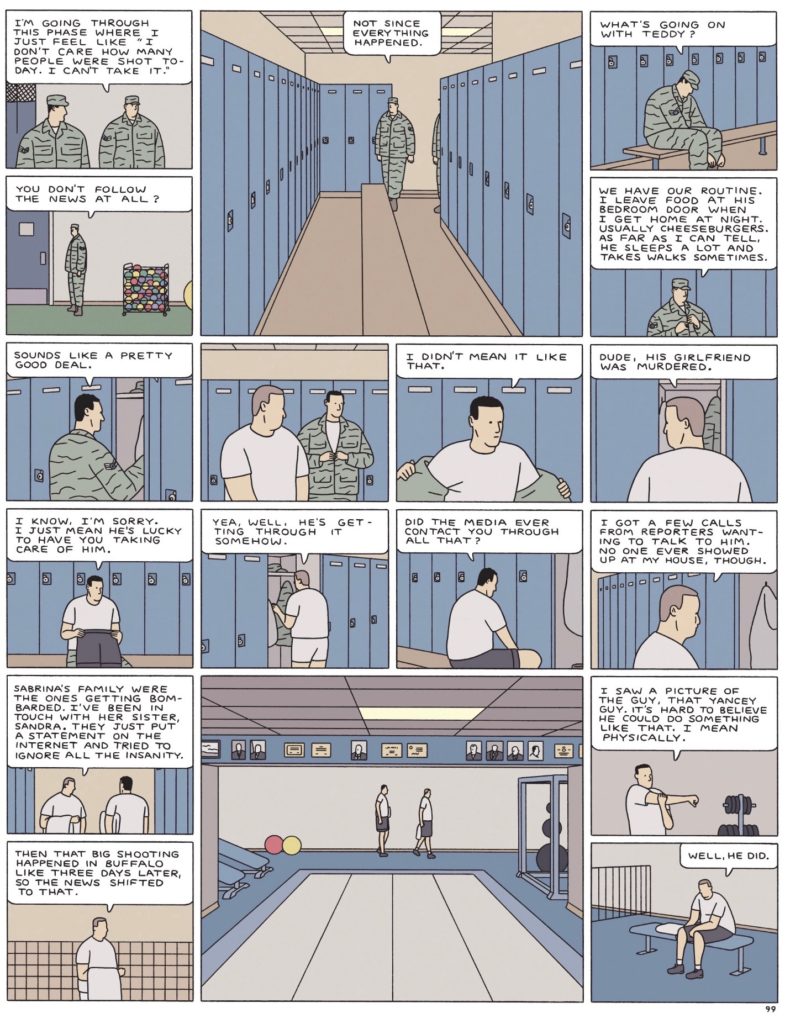
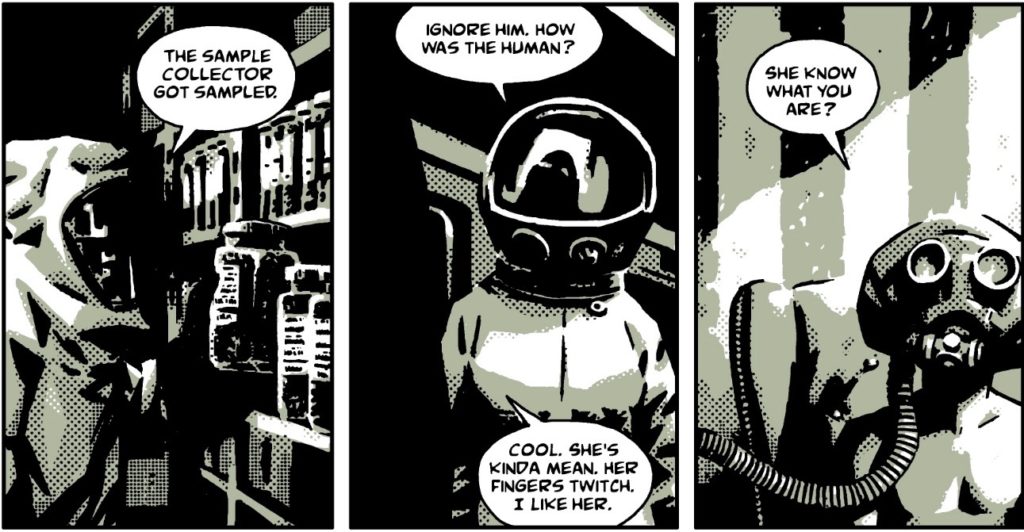
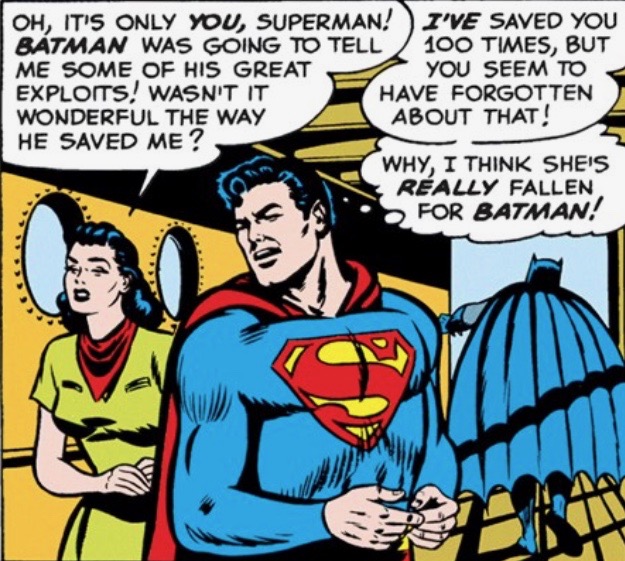
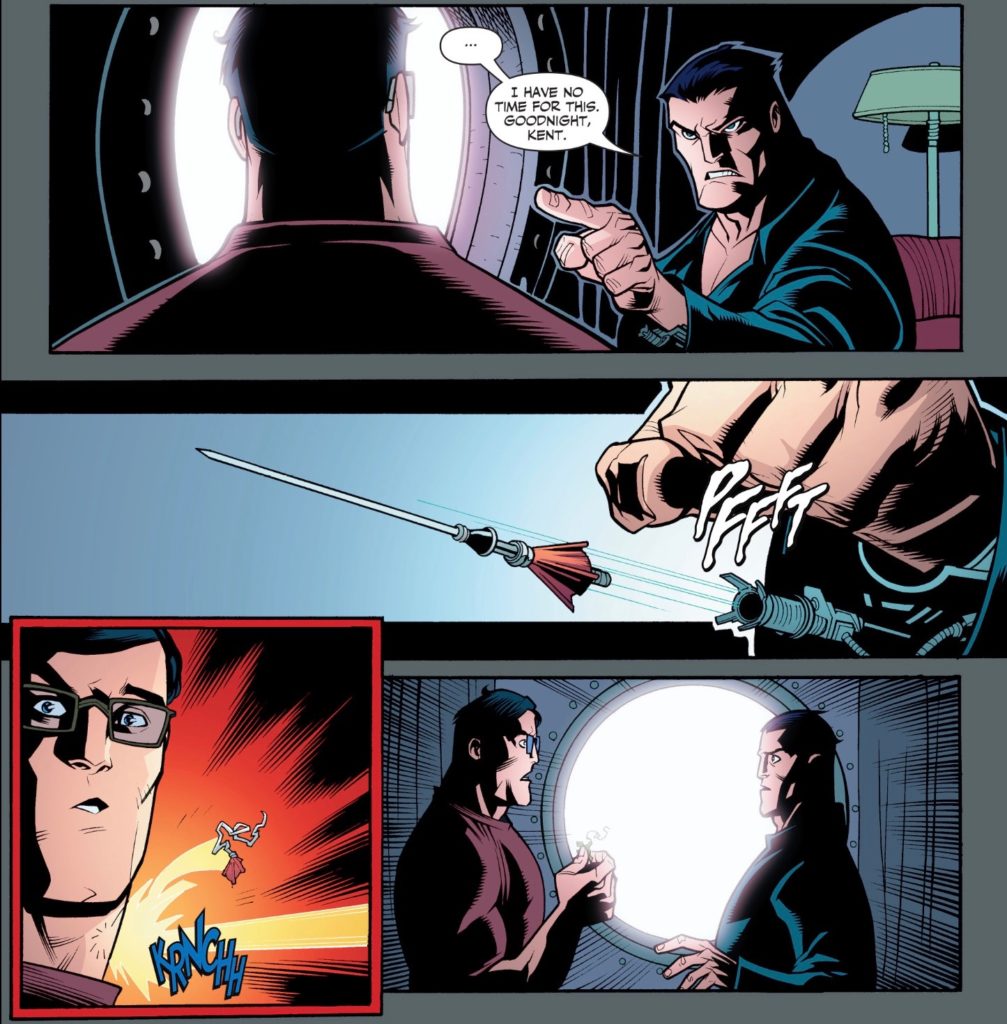
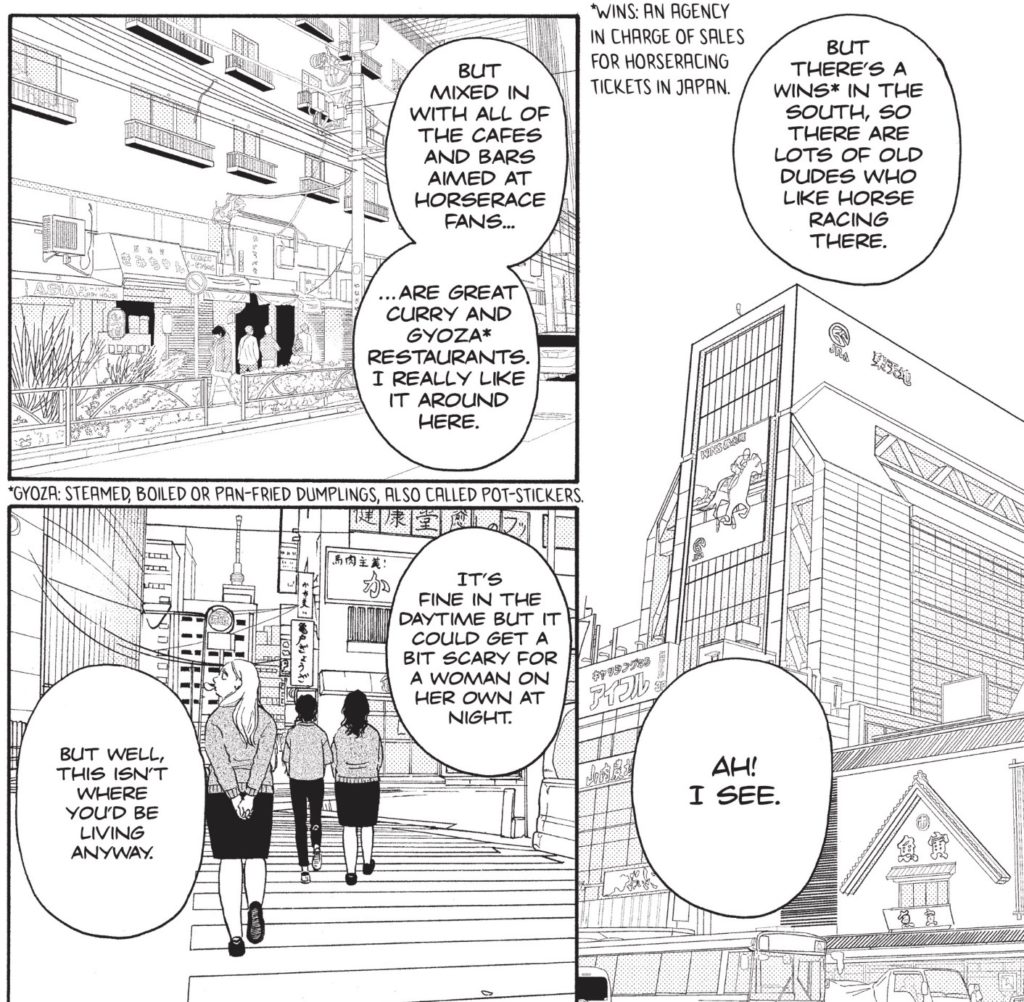
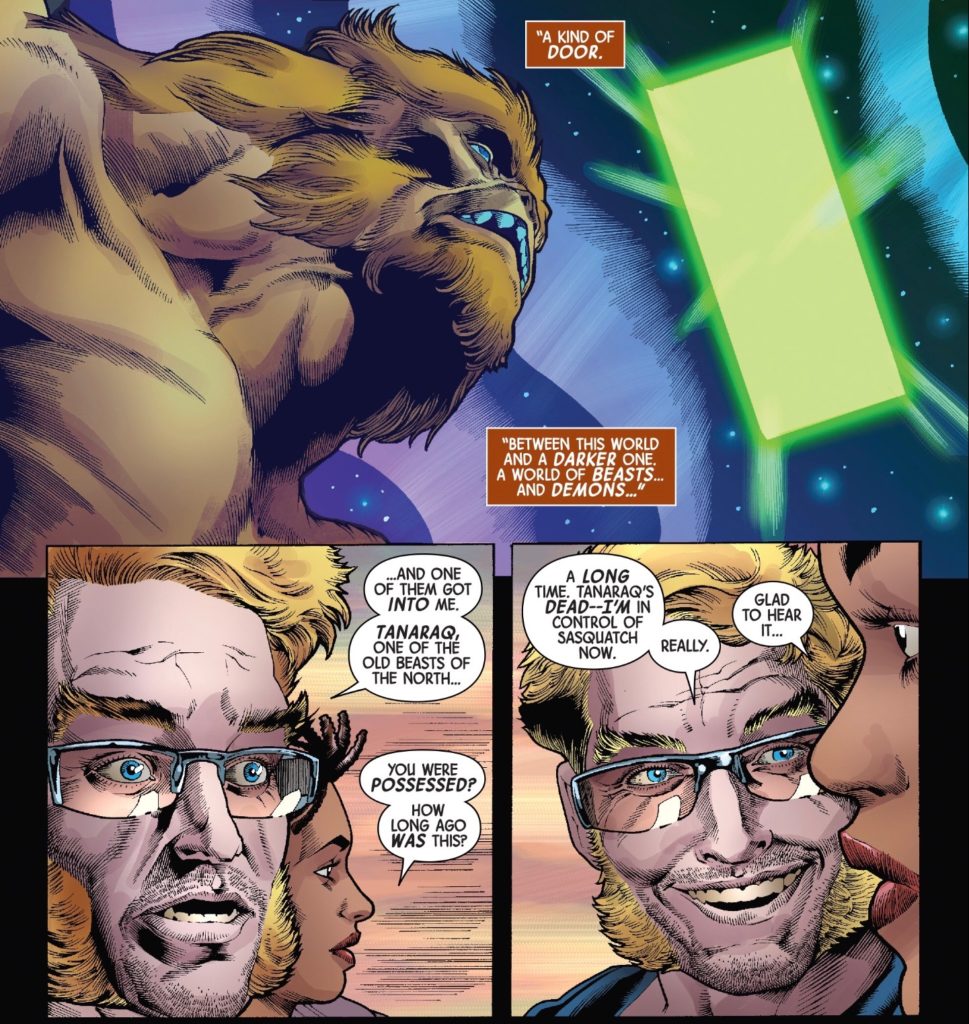
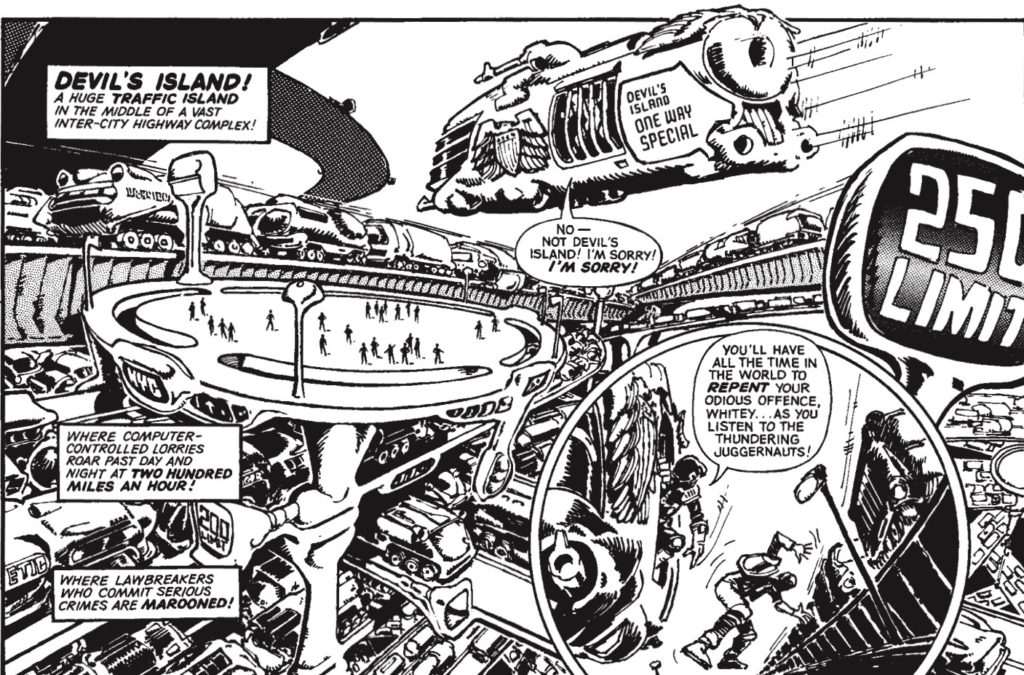


Have the need to copy & paste? Here it is:
http://theworkingdraft.com/media/podcasts2/WaitWhat253.mp3
Maybe I am not up on my conspiracies but the ways you guys talk of the Deep State in this episode as if the concept and term itself is the conspiracy is really odd.
After my grousing last week I’m compelled to thank you for the comic focussed discussion this week. I really enjoyed it… From Sabrina to World’s Finest! Great, great talk!
Thanks, Nate! I was very pleased to read this.
Also Ed Brubaker and Sean Phillips taking a break from serialization to OGN. There’s TV stuff crowding work there but it aligns with the phenomenon.
Ooo, good point!
Long way from finishing this week’s episode, but since Graeme brought up Carey’s X-Men Legacy, I feel like I have to mention dinner with Juggernaut, since it’s one of my sentimental favorite single issue stories. The idea that the reason Cain’s always much less powerful as a good guy or villain team member than as a solo villain is because when he starts to feel like he belongs, he puts down roots and loses his momentum in an emotional way is so simple and obvious, and it’s such a great character-driven explanation for a much more storytelling-driven choice (“if he can take all the X-Men on his own, making him a hero means he can beat any villain solo and we can’t have that!”). That one issue made me a fan of the character in a way I hadn’t been before and is basically the only thing I remember from that run aside from liking and looking forward to it.
A couple of scattered thoughts:-
– Our hosts continue to taunt a segment of their audience by talking about Hoopla. Some of us out here have libraries who only give us access to Overdrive [Libby] instead. Grumble.
– I can remember the point at which, reading 2000 AD in the late ‘80s, I started to wonder if Pat Mills was actually a brilliant right-wing propagandist trying to provoke people into thinking things like, “Actually, Thatcher has some valid points.” This was when Mills responded to the “Comics can be for grown-ups!” development by going, “Right, this means I can have a character in every comic who lectures the reader about what the politics of the story are.” Reading them felt rather like having one’s brains beaten out with a large mallet with “MESSAGE!” written on it. I felt the definite urge to push back, purely because I was irritated by the tone being so [expletive deleted] smug and hectoring.
– But on the police thing in particular, I can remember a particular bit in Crisis that played off Safecorp (I believe that was the name), the privatized police force in the imagined near future, against one of the last members of the Metropolitan Police, that suggests that then, at least (about 1989?), Mills still had a fair bit of sympathy for an idealized old-fashioned Dixon of Dock Green vision of the police as public servants.
I don’t know that it’s applicable to Dredd, though, because I don’t know that Mills would ever extend that to to an American context. I suspect that his Dredd was just him writing what he thought boys would want to read, as a jobbing comics writer who had bills to pay.
– I haven’t read Rogue Trooper in a long time, but I don’t know that I’d think of the fact that it does WWII stories under a shamelessly thin SF guise as a problem so much as … well, isn’t that the point of Rogue Trooper? It’s a brilliant move – 2000 AD kills the dominance of WWII in British boys’ comics, and then it adds insult to injury by creating a strip in which it can do all those stories.
I recently read the collected Marshal Law for the first time, and while the original arc still holds up (and Garth Ennis should be paying Mills royalties, as he should to Mark Verheiden and Rick Veitch), as it progresses (ha ha) the smugness becomes almost unberable. Ha ha, these kids characters are pretty crap for realsies! Did I BLOW your MIND?????
In the afterword Mills whines about how you can’t use the “it’s just entertainment” excuse because “real heroism” is obscured by these fantastical tales, but you know what? You’ve been singing that tune for three decades, son.
Are things better now?
Have things changed?
Also, one of the few things Tuckaloosa Slim Stone has ever said that didn’t feel like performative bullshit for whatever crowd he thought he needed to curb favor from that week was “Pat Mills would irritate Katrina Vanden Huevel.
Somewhere in Mayfair…
“Good to see you, Patrick. You know, I was just talking to one of our friends at Thames House about you. How is the work going?”
“Very well indeed, Sir Cyril, very well indeed. At least if one takes the long view, as one should. Just yesterday I learned that seeds I planted years ago are still bearing fruit. Chap named Coyle, reacting exactly as I intended.”
“Splendid. Absolutely splendid. It’s such a shame that no-one will ever know of the great things that you have done in our struggle against crypto-communist subversion.”
“But that would defeat the point, Sir Cyril.”
“Quite so, Patrick, quite so. Still, you can have another sherry, I think?”
“Much obliged, Sir Cyril.”
Eh, Pat Mills hasn’t changed my politics, but I’m far more tolerant of superheroes than he is.
Garth Ennis has made me an IRA supporter, though.
Is it just me or is it weird when places that you visit or am familiar with get mentioned in fiction? This is in reference to the Kichijoji comic.
Not weird, per se. (I grew up in Dublin, which is to say I grew up with a fair bit of “This place is where X happens in Ulysses,” so I was probably immunized against it at a young age.)
But it can be amusing. I recently had occasion to look at one of Claremont’s Classic X-Men continuity-implant backup strips from the ‘80s, which happened to be set in Ireland. It contained the description of Irish people as being “as wild and indomitable as the landscape itself.”
So, not very wild and indomitable, then? Gentle rolling hills for the most part, flatter bit in the middle, some mountains that are pretty but not particularly high? Occasional peat bogs?
I’m actually more weirded out by being in places where famous historical incidents happened. Paris is guaranteed to trigger this in me, every time.
Claremont was raised on Long Island, so maybe the landscape of Ireland looked indomitable?
I live in San Francisco, so I’m probably a bit jaded…but I still find myself insensibly pleased when some place I’ve been pops up on the big screen. When it happens in literature, I tend to super-scrutinize the piece and/or myself to see how has the more “accurate” take.
I appreciate this episode so far because you really get the full range of how our hosts recap comics:
You have Graeme poking fun and saying “You guys! I’m X now because I’m in Phantomex’s body”
And you have Jeff, desperate not to talk about a comic book saying “Conspiracy theories are human nature”
This still makes me laugh, because IIRC these are literal quotes.
You know I’m a stats/sales nerd, so I went and pulled all the data for Motor Crush I could find in ICV2.
The book launched really well (#1 sold 21,801), but lost almost half it’s sales for issue #2 and then the three month hiatus between issues #5 and #6 really seemed to hurt the momentum of the book. #6 sold pretty well (better than #5!), but #7 fell to the point where Terry Moore’s Motor Girl* (which launched at 11,587) sold better than it.
I’m guessing that a further four month hiatus just killed the book’s pre-order numbers.
ICV2 has the first volume of Motor Crush selling 5,010 in the first month and 6,735 copies in 2017 (and over a thousand so far in 2018). Hibbs’ Bookscan numbers don’t have it charting _at all_ in the top 750, so it sold fewer than 4,000 copies through bookstores. ICV2 has volume 2 of Motor Crush selling 1,633 the first month. I’m not sure how well they’ll be able to transfer the single issue audience over to the collections, but I would also think that volume 3 is probably the last. Hopefully it’s able to give a good conclusion to the series!
*Used as a comparison because it also has “Motor” in the title and came out at about the same time. #5 of each series sold basically the exact same amount.)
These are very helpful stats. Thank you!